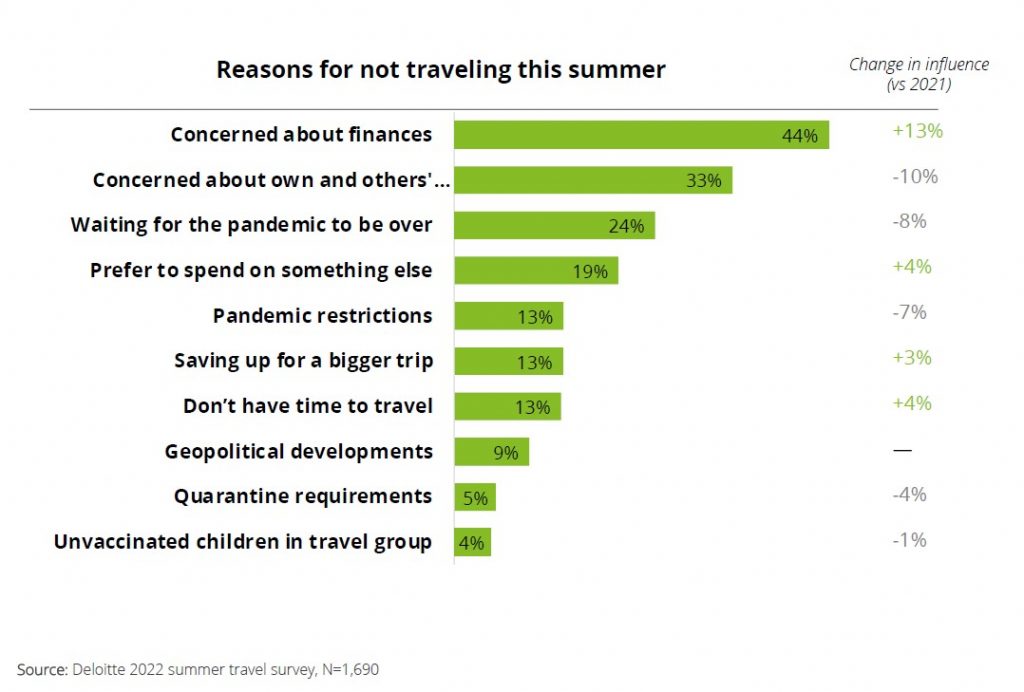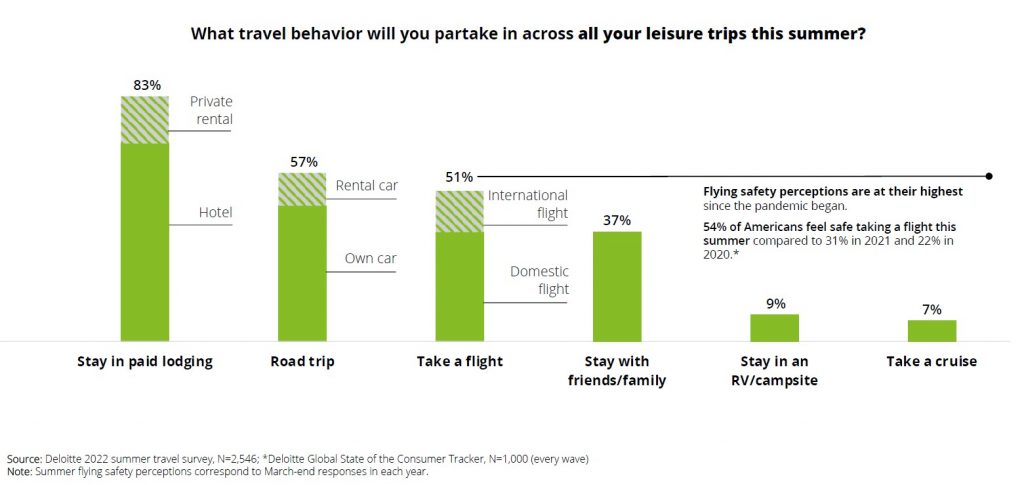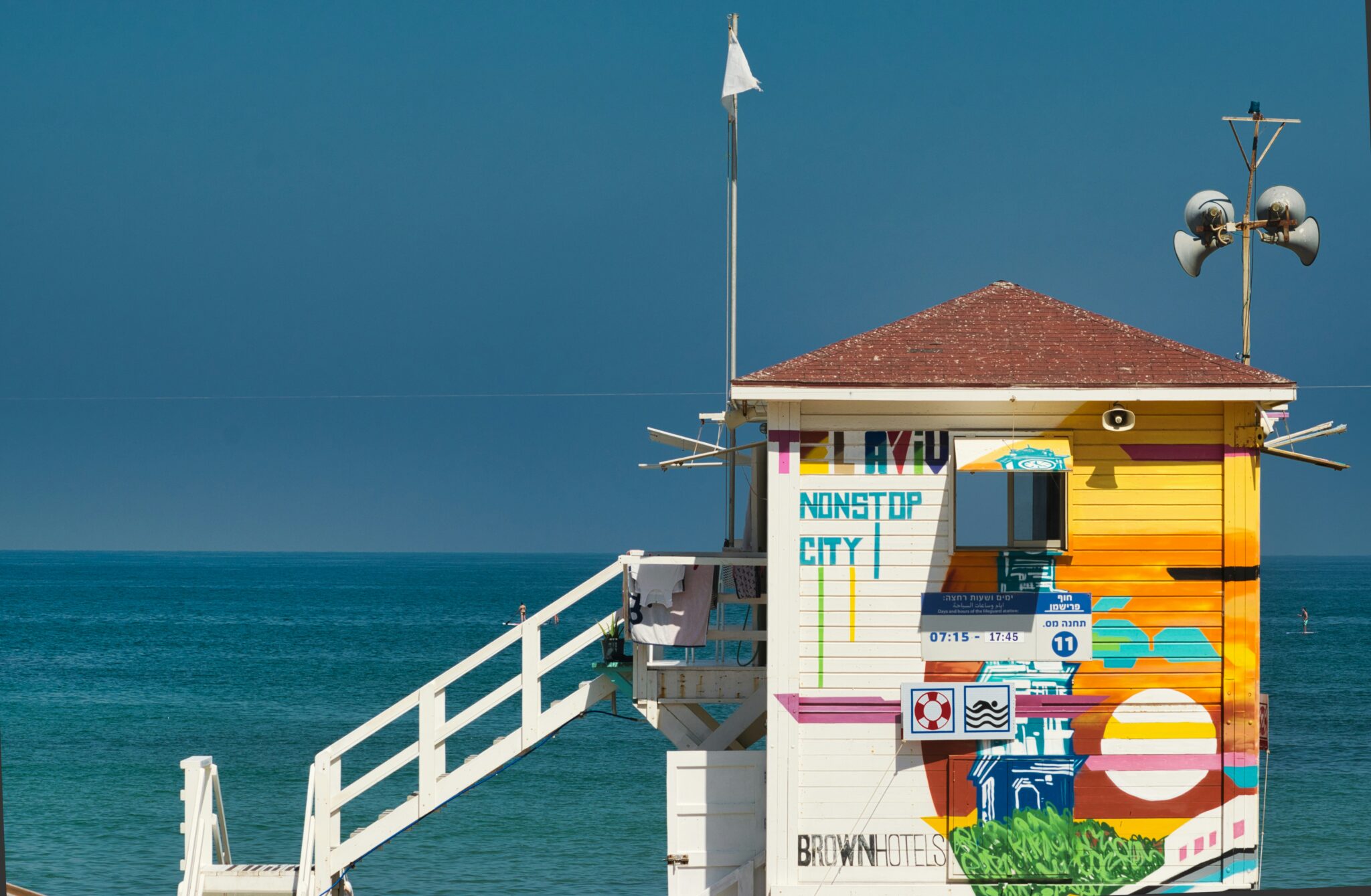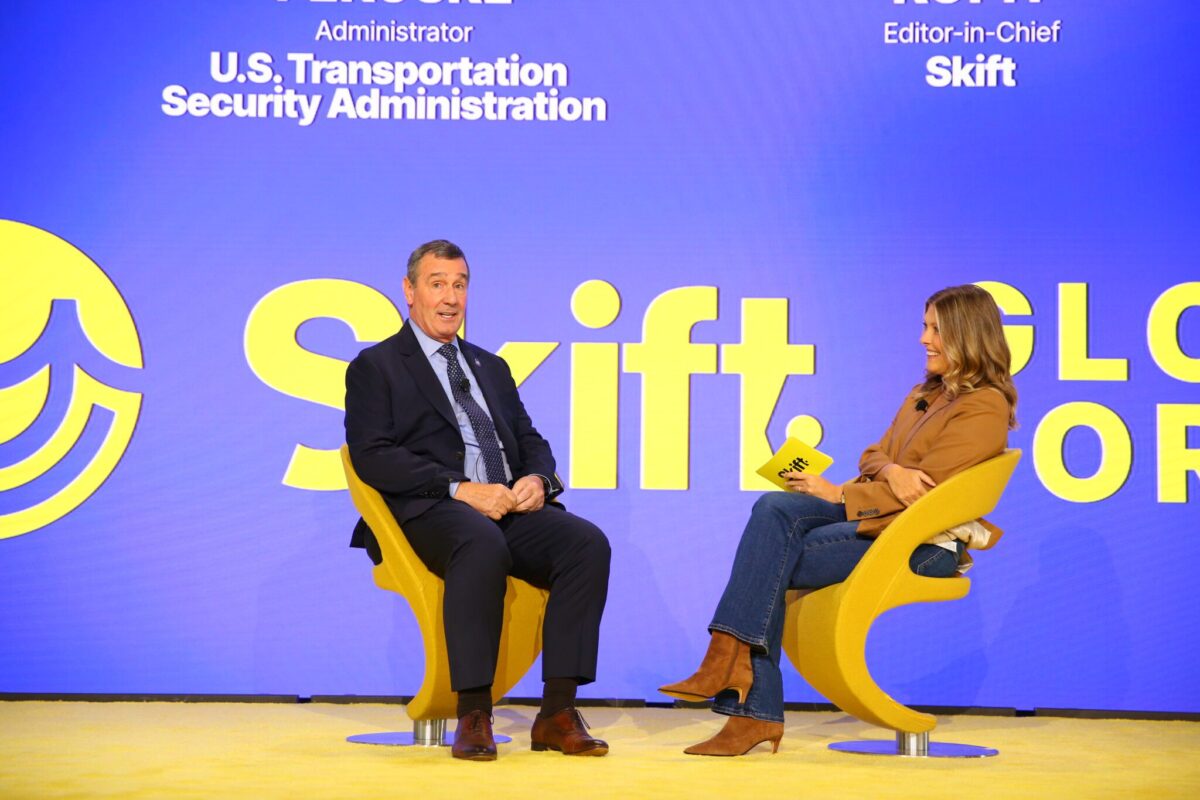U.S. Travelers More Concerned About Costs Than Covid for First Time Since Pandemic

Skift Take
While Covid remains an important factor in travel decisions, nearly half of U.S. travelers said that financial concerns are the primary reason they will not be traveling this summer, according to a recent summer travel survey by Deloitte.
“With traveler confidence increasing and health concerns declining, Americans are packing their bags and upgrading their summer trips,” said Mike Daher, vice chair of Deloitte LLP and U.S. transportation, in the report. “However, a rise in financial concerns for some will keep them grounded.”
Out of those choosing to stay at home this summer, forty four percent of respondents, up 13 percent since 2021, said that financial factors were their main concern when it comes to traveling, replacing health and safety factors for the first time since the start of the pandemic.

In fact, travelers with a household income under $50K are twice as likely to say they significantly cut travel budgets from pre-pandemic years, compared to those at higher income levels.
Despite rising travel costs, six in 10 Americans have plans to travel in this year, up from five in 10 from 2021. Most U.S. travelers will take an average of two trips this summer, with 51 percent planning to fly and 57 percent planning to take road trips. Although road trips are still more popular, the rise in air travel means that fewer Americans will be hitting the road this summer compared to last summer — 62 percent of respondents said they will drive at some point during their trip, which is down fourteen percent from 2021.
Forty six percent of Americans plan to travel and stay in a form of paid lodging, which is up five percent from last year. Travel spend will also increase this summer, a result of both higher airfare and lodging rates, as well as pent-up travel demand.
As travelers are displaying more confidence in the safety of air travel, they are also more willing to pay for comfort and space.
“A trend we’ve noticed in this year’s report is travelers’ willingness to pay for upgrades — out of those who are flying, over fifty percent are willing to pay for or intend to pay for an upgrade, whether that’s first class or any other sort of upgrade,” said Eileen Crowley, Vice Chair of Deloitte & Touche LLP and US transportation. “It could be that people want more space due to Covid, or it could go back to the accumulated savings that this group of travelers have. It might also be related to our ‘laptop luggers’, who fared well during the pandemic.”
In the face of rising prices, non-flying travelers are finding other ways to accommodate their spending and budget their expenses. While more than half of U.S. travelers plan to take road trips, many are considering cutting their road trips short, compared to road trip lengths from last year, mostly due to fuel prices. Compared to those who prefer to travel by plane, drivers are much more likely to budget their travel spread as well as travel in larger numbers.
Travelers are continuing to show increasing interest towards private rentals, with 20 percent of travelers planning to stay in private rentals and one in seven among the 20 percent using this form of lodging for the first time this summer.
One in five travelers have plans to work during their longest summer trip, with additional plans to work at least partially during their overall summer travel. As a group, these travelers plan to take more trips and spend more and exhibit distinctive preferences across travel decisions, while they attribute at least one trip to the ability to work remotely.
Overall, the remote work experience plays a huge role in length of trip and lodging choice. Among the “laptop luggers”, three in four say their longest trip is going to be one to three weeks long, and four out of five respondents plan to extend their trips due to their ability to work remotely.
Those who are working during their trips are also twice as likely to stay at private rentals for the first time during the pandemic, and are nearly one and a half times more likely to continue using them during future trips. The remote working experience increased 12 percent in influence to choose hotels from last year, while the remote working option in relation to private rentals increased 19 percent in influence since last year.

Health factors, while still a concern, play a much smaller role towards where Americans are choosing to travel compared to last year — among travel decision factors related to Covid, crowd avoidance dropped seven percent and social distancing norms dropped 13 percent since 2021. In addition, the report showed that travelers have become more comfortable with activities that involve sharing space with others over the past year, such as dining out and visiting attractions.
U.S. traveler sentiment surrounding flight safety is at an all-time high, with 51 percent of those planning to travel this summer saying they will be traveling by plane. Fifty four percent of Americans said that they feel safe taking a flight, a sizable jump from 31 percent form last year, and 22 percent in 2020. Still, the surge in demand for international travel hasn’t quite hit in the U.S. yet, with only one in eight Americans planning to go abroad this summer, according to the report.




